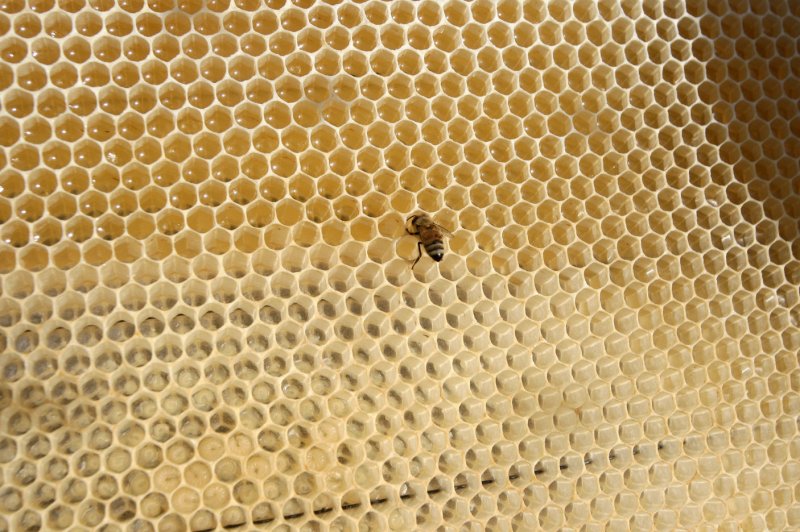Low dilutions of Manuka honey have the ability to deter the growth of bacterial biofilms, scientists from the University of Southampton claim in a new study. File photo by Ismael Mohamad/UPI |
License Photo
SOUTHAMPTON, England, Sept. 28 (UPI) -- Low dilutions of Manuka honey have the ability to significantly deter the growth of bacterial biofilms, scientists from the University of Southampton claim in a new study published on Tuesday.
Manuka honey has been used as a natural medical treatment for a variety of ailments throughout history, including burns, wounds, and other types of injuries. The honey is produced from the nectar of manuka trees found in Australia and New Zealand.
The new study, published in the Journal of Clinical Pathology, suggests Manuka honey's use as a medical tool should be expanded into other areas of treatment, particularly in urinary infections related to catheter use. According to researchers at the University of Southampton, even small levels of the substance slow the growth of bacterial biofilms.
Long-term catheter use is associated with inflammation and infection. Bacteria can build up to form a thin, sticky layer on plastic surfaces, and such biofilms can be hard to clear, especially from medical devices used inside the body.
"We have been able to demonstrate that diluted honey is potentially a useful agent for reducing biofilm formation on indwelling plastic devices such as urinary catheters," Associate Professor Bashir Lwaleed said in a statement.
To test Manuka honey's potency as a bacterial deterrent, Southampton scientists cultured strains of Escherichia coli and Proteus mirabilis bacteria, which account for most urinary tract infections associated with catheter use. The honey was diluted with various levels of distilled water, allowing researchers to observe different "strengths" at 3.3 percent, 6.6 percent, 10 percent, 13.3 percent, and 16.7 percent.
Researchers found the honey effectively reduced the stickiness of the bacteria, slowing the development of biofilm. All solutions were found to suppress bacterial growth by roughly 70 percent after three days. Southampton scientists admit their study was confined to laboratory conditions, but are confident Manuka honey has the potential to reduce the frequency of urinary infections in medical settings.
"Catheter infection rates can account for a large proportion of hospital acquired infections - it is an area of clinical practice that needs addressing," Lwaleed added. "We hope that these results may offer an alternative way of preventing such infections. We believe that patients might also benefit from honey's anti-inflammatory properties, which are generally stronger in dark honeys, such as Manuka and that antibacterial resistance is unlikely to be a factor when honey is used."















